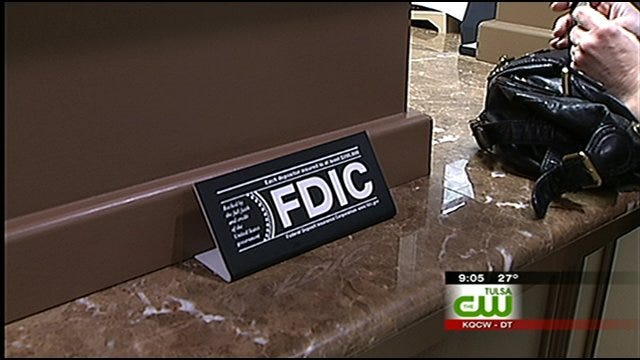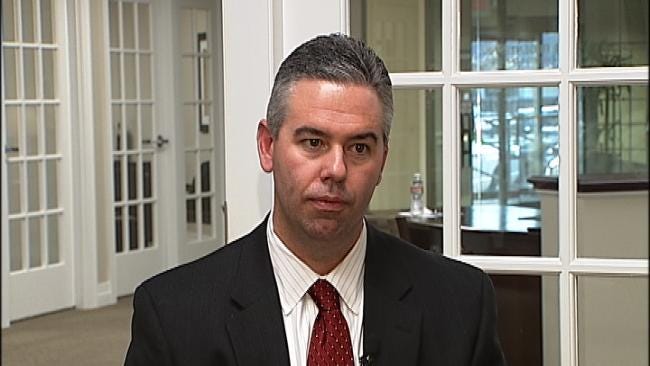FDIC Warns Oklahomans Of Phishing Scam
The FDIC sent out a special alert to banks across the country, warning of a scam that may be found in your e-mail inbox. <br /><br /><a href="http://www.fdic.gov/" target="_blank">Federal Deposit Insurance Corporation</a>Tuesday, January 18th 2011, 9:16 pm
Dan Bewley, News On 6
TULSA, Oklahoma -- The Federal Deposit Insurance Corporation is warning about an e-mail asking for your personal information.
The federal insurance program protects bank customers but the FDIC is worried someone is phishing for private information. The FDIC sent out a special alert to banks across the country. It warns of a scam that may be found in your e-mail inbox.
"We are targeted frequently by scam artists and this is no exception, although this one's a little more creative," said Sean Kouplen
Sean Kouplen, President and CEO of Regent Bank, is on alert after learning his customers may be the target of a scam looking for their personal information.
The FDIC says the scam comes through e-mail and warns people that "The FDIC has withdrawn deposit insurance from your account due to account activity that violates the Patriot Act."
It goes on to say that "...deposit insurance will remain suspended until identity and account information can be verified using IDVerify."
It tells the customer to clink on a link that the FDIC says could load malicious software on your computer or the customer will unknowingly pass on confidential information.
Kouplen says it's important to note that FDIC insurance has never been revoked from a banking institution. That includes even banks that fail because the insurance comes through the federal government, not the bank itself.
"Even when a bank fails that FDIC insurance remains intact, that clients deposits are protected up to the $250,000 limit. Period," Kouplen said.
Kouplen also says the FDIC never communicates directly with customers; it goes through the bank to pass on important information.
He says these scams are simply phishing expeditions that can cause bank customers to question the confidence they have in their bank.
"These types of e-mails and hoaxes, they undermine that safety and security and we don't want that," Kouplen said. "We want people to know their money is protected when they put it in the bank."
Kouplen says if you receive the e-mail to contact your bank or credit union right away, or you can also contact the FDIC.
More Like This
January 18th, 2011
March 22nd, 2024
March 14th, 2024
February 9th, 2024
Top Headlines
April 18th, 2024
April 18th, 2024
April 18th, 2024













